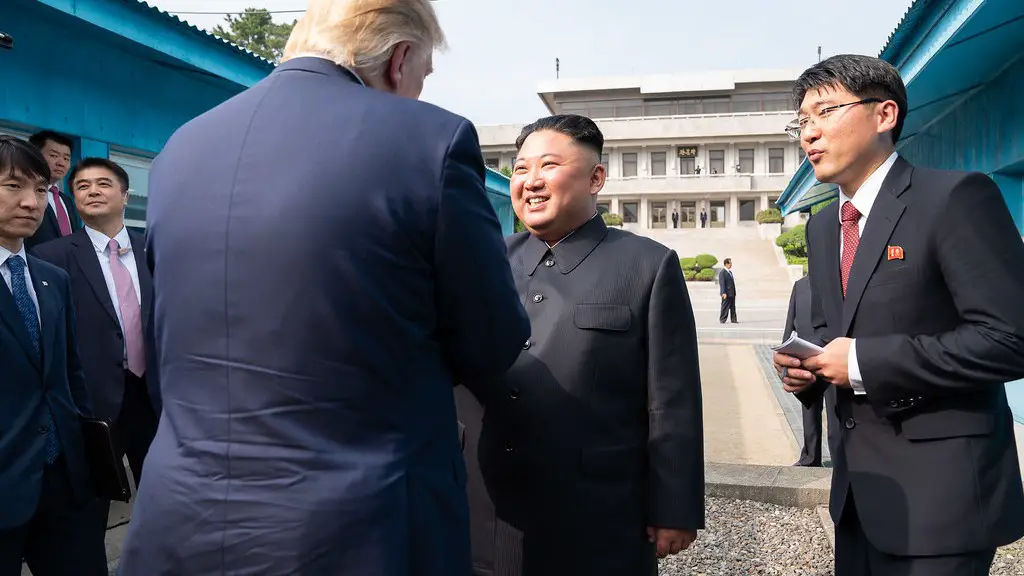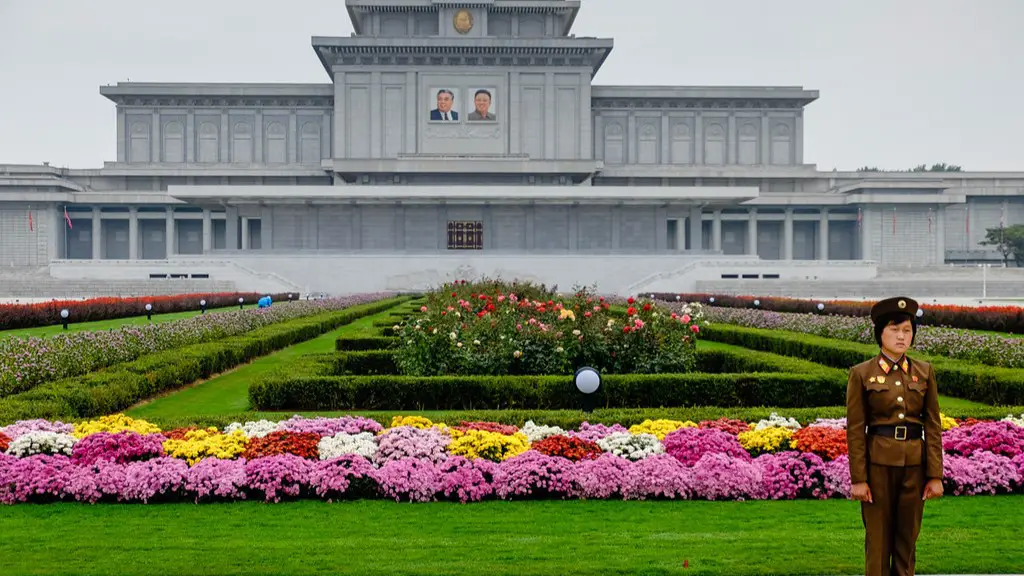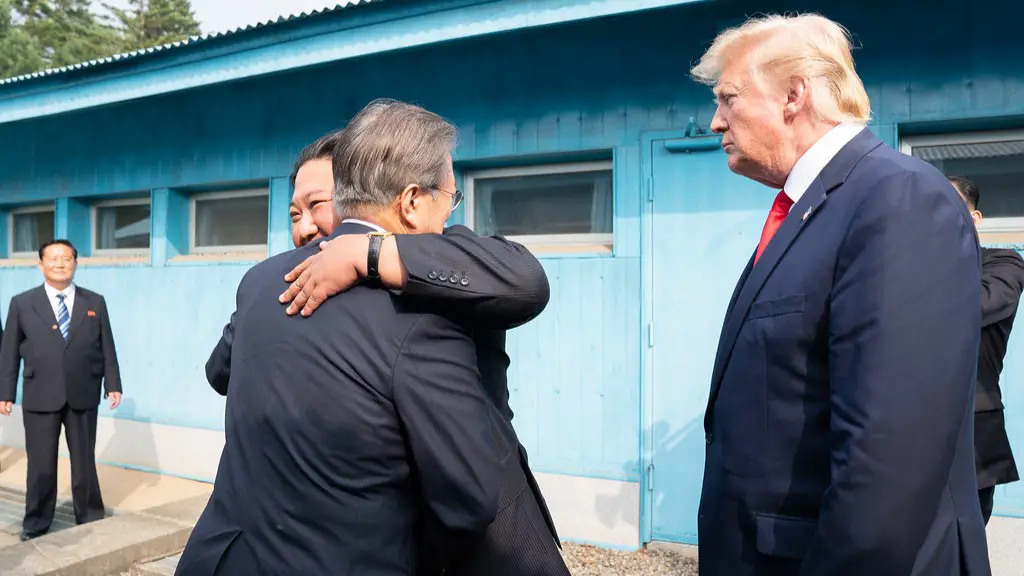Background
North Korea, officially known as the Democratic People’s Republic of Korea, is a single-party socialist state located in East Asia. The country is bordered by China, Russia and South Korea, and is divided in two by the Korean Demilitarized Zone. North Korea has a population of around 25 million and is one of the poorest and least developed countries in the world. According to the World Bank, the country had a gross national income of just over $1,000 per capita in 2018.
History
North Korea has been living under the rule of the Kim dynasty since the end of World War II. The country has experienced a series of economic crises since then, including a famine in the 1990s which is estimated to have caused the deaths of up to 3 million North Koreans. Under the Kims, the North Korean economy has effectively been isolated from the rest of the world and the government has implemented a number of oppressive policies which have made it difficult for citizens to access basic resources, including food and healthcare.
Economic Policies
North Korea’s isolated economy has been characterized by a heavy reliance on central planning and an emphasis on the military-industrial complex. The country has long devoted a large portion of its resources towards military expansion and development, which has hindered economic growth and placed a greater strain on the nation’s limited resources. In addition, the country’s currency is not widely accepted internationally, meaning that North Korea has difficulty accessing foreign capital and accessing global markets.
International Sanctions
North Korea’s international relations have been negatively impacted by a number of sanctions imposed on the country by the United Nations in response to its nuclear weapons program and its human rights record. These sanctions have added to the already dire economic situation in North Korea and have made it even harder for North Koreans to access basic needs such as food, healthcare, and education.
Social Wellbeing
In addition to its poor economic state, North Korea is reported to have one of the lowest social wellbeing rankings in the world. The country’s poor healthcare system has led to a high infant mortality rate, and access to basic services such as clean drinking water, adequate nutrition, and electricity is limited. According to human rights organizations, basic freedoms such as freedom of the press and freedom of expression are also heavily restricted.
Corruption and Inequality
North Korea is rife with corruption and inequality. Corruption at senior levels of the government is reportedly widespread and nepotism is commonplace. The country’s elite have access to the government’s limited resources while average citizens suffer the consequences of the regime’s policies, unable to access basic necessities. This inequality has been noted by international organizations and has been a major factor in North Korea’s economic and social struggles.
The Future for North Korea
The future for North Korea remains uncertain. In recent years, the country has opened itself up to international engagement and dialogue, which has eased some of the international sanctions imposed on the country and has helped open up the economy to foreign investment. However, in order for North Korea to experience substantial economic growth, it must first address the underlying causes of its poverty, including corruption, inequality, and a heavy focus on military spending.
International Aid and Development
International development and aid organizations have been working to improve conditions in North Korea, though their efforts have been hindered by the country’s restrictive policies and reluctance to open up to the world. Organizations such as UNICEF and the World Food Program have been providing humanitarian aid to the country, while the United Nations Development Program has implemented several development projects aimed at helping North Koreans access basic resources such as food and healthcare.
Populism
In recent years, North Korea’s leadership has shifted to a more populist stance, which has included loosening some of the restrictions on economic and social activities. This has helped open the economy to more foreign investment, though it has done little to address the underlying issues that cause poverty. It remains to be seen if this populist approach will be successful in alleviating North Korea’s poverty.
Political Reform
The only way for North Korea to experience lasting change is through political reform. This could include the introduction of multi-party democracy, the adoption of free-market economic policies, and the dismantling of oppressive policies that deny North Koreans basic human freedoms. However, these steps are unlikely to be taken without strong international pressure, which could make a lasting improvement in the lives of North Koreans.
Conclusion
North Korea is one of the poorest countries in the world, and its economic and social woes are largely attributed to the country’s oppressive policies, emphasis on military expansion, and limited access to international resources. International organizations have stepped in to provide aid, but the only way for lasting change to occur is through political reform and the adoption of free-market economic policies. This, however, will require strong international pressure in order to be successful.


